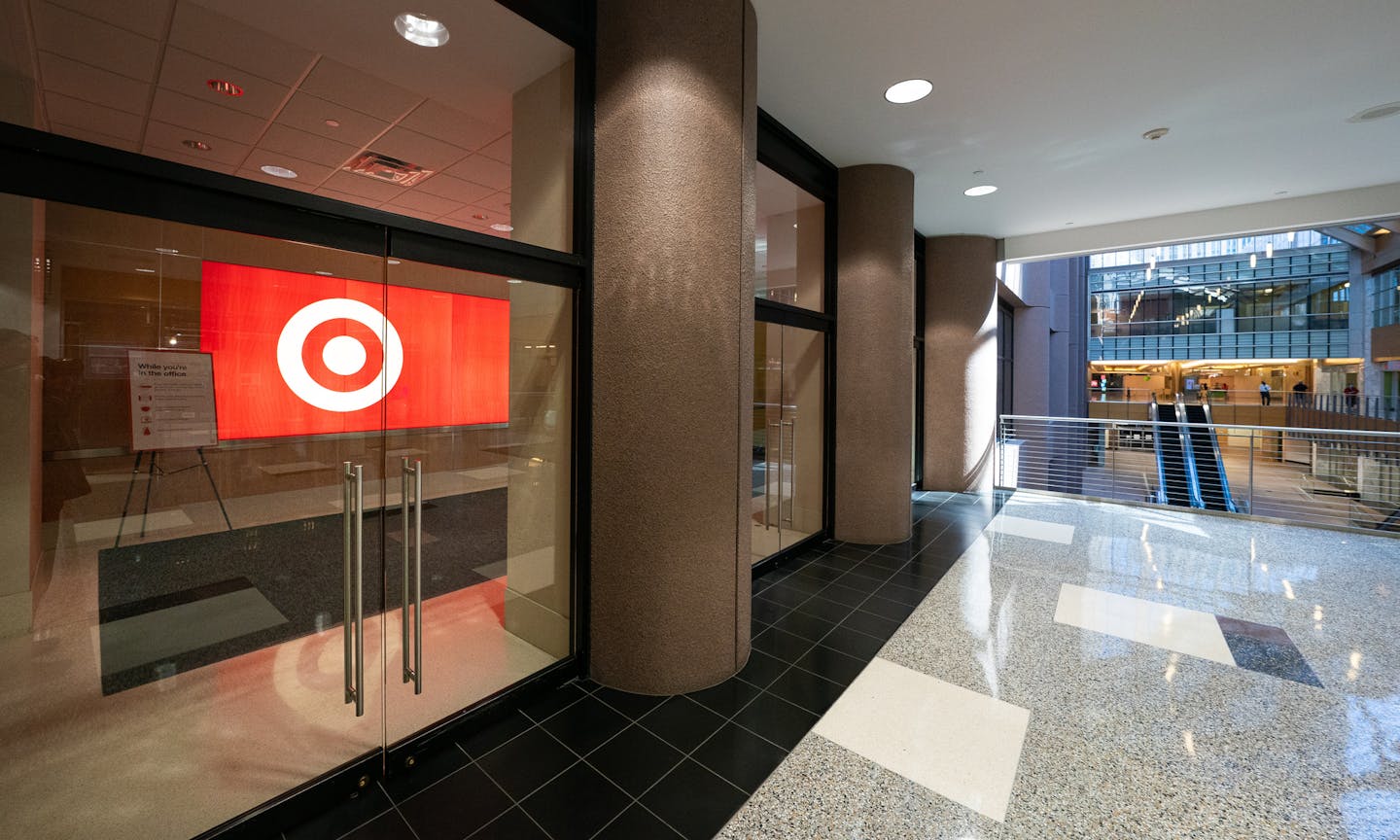Just how different the post-pandemic world of work will look came into greater focus on Thursday when Target Corp. announced that it will move out of City Center, a major downsizing that will reduce its office space in downtown Minneapolis by a third.
Target, the largest employer downtown, said it no longer needs the nearly 1 million square feet it occupies in that skyscraper as it plans for a hybrid future in which workers will combine remote and on-site work. It made the decision even with 10 more years left on its lease.
The company's exit from City Center will leave a gaping hole, since it takes up about two-thirds of the 51-story tower. All of Target's offices have been mostly empty in the past year as the company, like many, sent employees home to slow the spread of COVID-19. About 3,500 of Target's 8,500 downtown Minneapolis employees worked in City Center before the pandemic.
Those employees will be given a new "home base" in one of Target's other buildings along Nicollet Mall or at its campus in Brooklyn Park, executives told employees Thursday morning.
Target is the first major downtown employer to reveal plans for a significant reduction of office space, and it is expected to be followed by others. As the day nears when public health conditions allow office work again, many bosses and business owners are re-evaluating space. They expect some employees from now on will decide to split their work between home and office.
Because of its size, Target's decision could affect mass transit patterns, real estate values and the future of other businesses, such as restaurants and retail stores, in downtown Minneapolis.
Minneapolis Mayor Jacob Frey on Thursday remained upbeat about the future of downtown.
"This news doesn't alter our momentum for recovery downtown," he said. "Downtown is now and will always be unique in that there is an unparalleled energy to downtown culture. [It's] bigger than any one entity. You certainly can't experience that dynamic from a Zoom call on your couch."
He pointed to the renovation of the former Dayton's building and recent decision by Deluxe Corp. to relocate its headquarters and 525 employees from Shoreview as signs that major employers and developers remain committed to downtown.
At the same time, he noted that the shift toward more flexible workplaces is happening everywhere. "A rethinking of a modern workplace and workforce has been inevitable with advances in technology, but COVID-19 has certainly expedited the rethinking in some ways," Frey said.
Target had planned to bring workers back to the office in June but said last month that it would delay that return until the fall. In an e-mail to employees, Melissa Kremer, Target's chief human resources officer, said the company will adopt a "Flex for Your Day" approach in which employees will be able to work remotely or at the office as they "gradually return to headquarters."
"Our headquarters will always play a central role in who we are and how we work at Target," she said. "We believe in the culture, collaboration and competitive advantages of working together at our vibrant headquarters in the Twin Cities and around the world. But the reality is that 'Flex for Your Day' will require less office space, so we'll be ending our City Center operations in downtown Minneapolis."
The company did not provide a timeline of when it will vacate City Center, but Kremer said Target was sharing this decision early in the process so the company, workers and building management can plan.
Target's lease at the City Center, renewed in 2015, goes through December 2031. A Target spokeswoman said the company will work with its landlord to fulfill obligations associated with the lease, but didn't provide further details.
Steve Cramer, president of the Minneapolis Downtown Council, said he believes many other companies will incorporate remote work into their real estate decisions.
"I don't think the sky is falling," he said. "There is a difference between a collapse and an expected economic reset, and I believe this is a reflection of an economic reset and not a collapse."
He noted that Target's 8,500 downtown employees will still show up to work in the city, just not every day.
"Target still expects to be the largest employer in downtown," he added.
Target was an original tenant of City Center when it first opened in 1983. The building sits along Nicollet Mall between 6th and 7th streets.
In 2018, the City Center complex, which includes a three-level retail mall, was sold by HNA Property Holdings to Samsung Life Insurance for $320 million. At the time, the sale price broke a record for a single asset sale in the city.
Ryan Cos., a Minneapolis commercial real estate specialist, manages the building and will now face the challenge of finding new tenants for the soon-to-be-vacant space.
Target's other 2 million square feet of downtown office space is spread out among four buildings near Nicollet and 10th Street. Its Brooklyn Park campus has another 1.17 million square feet of office space.
Staff writers Dee DePass and Liz Navratil contributed to this report.




